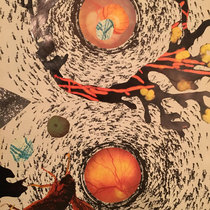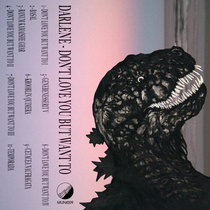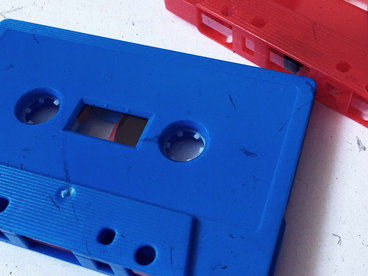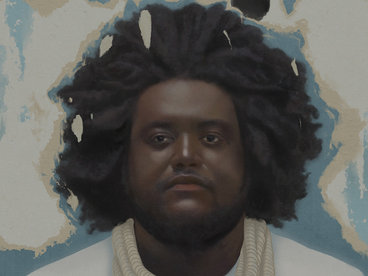
A Common Enemy in Ignorance
from Child-Buyers: An Introduction to Comprachicos by Choir Korneli Leviyey
lyrics
There is a lot going on within our world at the moment. Society as a whole is waking up to the fact that mental illness is not the exception but the rule of this earth (at least in its current state of disarray) and the masses are finally beginning to examine the degree to which they are hurting, traumatized, offended, and how best to respond. Now, I may not agree with every outcry to come of this complex process, although I do largely prefer the identity crises and temper tantrums of modernity over the mass denialism of yesteryear, if because it signals the progression of a valid and worthful process which, given the proper guidance, can carry us unto new heights of self-awareness and compassion. The key is guidance, and that is something that our sphere desperately lacks.
Our current model of leadership fails to reflect the sophistication of our modern understanding, basing itself around a set of superficial and oft-primitive flourishes which can only disorient our sense of our own potential. The capitalistic greed of the western world is perverting that which we view as progress and we are no longer striving toward stronger foundations and healthier spirits. And don’t be so quick to label this as a political position: it is a human position in that it speaks to the harsh psychological ramifications of modern day dissonance, and by considering it a partisan issue you would be falling into the traps laid for you.
Our tendency to neglect and disrespect the abstract within our materialistic society has left massive voids in both our defense and our resolve. This is not the product of rationality, but naivety, and that much becomes all too clear when seeing how we’ve handled the crisis of mental health, and how we speak of ‘survival’ mostly in reference to our physical bodies. Yet while we may be beyond the threat of tigers and snakes at this point in civilized time, our minds remain ever attuned to all sorts of dangers which we are unwilling or unable to acknowledge as we have not been brought up to guard our minds as we do our bodies. We may have left the wilderness behind, though our minds are still there among the densest of swamps and hottest of noontimes, and greater than the threat posed by our environment is the fact that we have managed to convince ourselves otherwise about the context in which we live out each day; and in our failure to recognize the gravity of our circumstances we have surrendered the need to create better shelters and provide better care unto our emotional well-being in the misguided belief that suffering is the standard and our greatest relief must come through distraction.
It isn’t necessary that I sit here and describe for you the state of our world, when the suffering of humanity is not hidden. It is inescapable. The cynical-minded will paint it up as a fact of life, if to lessen the burden of responsibility that rests on us all to confront our faults. Though as easy as it is to blame “society”, “humanity” or even “existence” itself for what we see taking place all around us, it is not only fallacious to do so but makes for a dangerous and disruptive precedent which limits our defense as well as our potential. By now these failures have become so normalized within our minds that most don’t even question the alternative, and the population at large knows only two options: to bleed willingly or bleed reluctantly. But I am not without hope. In fact, I believe that we are in a better position than ever before to take on the problems at hand and my optimism has only increased over time despite the negative views that I hold on the state of modern civilization. Such optimism is helped along by my viewing the problem as having naught to do with ‘nature’.
Our enemy is not the human heart, despite what we have grown to believe—not least due to millennia of religious indoctrination and the implicit dehumanization whereon most such dogma depends. And to say of our errs that they are the fault of ‘existence’ or ‘humanity’ is only another deflection of individual responsibility. Carefully note how the manner in which we perceive our nature tends to differ depending on our needs within a given moment: sometimes we opt to see it as the starting line, as in what is literally ‘natural’, whereas sometimes we use it more as a synonym for ‘fateful’, as though it were a rabid dog that always finds its way back to bite our ankles if we should drop our guard for even a moment. So which is it? Which one are we going with? Because surely it can’t be both.
To you who blames nature for our condition: do you also blame the infant child for the trouble in which they land themselves, or do you pity them, knowing the real problem to be that they lacked aid and guidance? That which we opt to regard as human nature more often relates to basic immaturity: an individual lacking the proper means to grasp their abilities, desires, boundaries and responsibilities. A child does not become an adult in mind and spirit via automatic processes but through mindful dedication, and when I look out and upon the population I see very few adults among a preponderance of traumatized children acting out their bitter voids.
Let us then approach the masses of mankind not as criminals but as children, for such is the reality with which we are faced. Only once we can look upon the population as children—and not derisively so but with proper compassion, realizing that the actions on display so often relate to a lack of proper guidance and to unmet needs rooted in youth which have retarded the process of psychoemotional maturation—will we understand the way forward. It is for this reason that I prefer to speak of health instead of relying on flimsy flexiwords such as ‘good’ and ‘evil’ which are battered with endless associations and can prove problematic as a gauge, their meaning being dependent on the paradigm (and the maturity) of the user. The dimension of health does also inform our concepts of goodness and evil to a large extent, and so my take can hardly be called novel, cutting to the core of these concepts with which we are working while bypassing the problems that are liable to arise from misinterpretation and misuse. For the problems with which our world is faced do not arise out of spite; out of malice. All is generated from the dearths, the needs and the pains that abound in our midst. And the more you come to recognize the nature of our plight, the more irresponsible and immature it will seem to you that anyone can go on pedaling these meaningless, yet highly-charged dichotomies. Health, on the other hand, is hardly so subjective (yet the health whereof I speak has as much or more to do with adaptation as preservation, and so you shall not conflate this ‘health’ with ‘coddling’).
I wish to see these attitudes given the proper emphasis, as they act to distinguish the Comprachicos collective from the preponderance of hyper-vigilant ideologies operating off of a dangerous us-versus-them mentality that ultimately aspires not toward health and holism but to further the imbalances in our midst. Healing will not come about unless we can consider the whole—the same as you will find with any system. And to function as a true humanitarian effort we must seek after the health and welfare of humanity on the whole and not just the specific clusters that we agree with.
Our current model of leadership fails to reflect the sophistication of our modern understanding, basing itself around a set of superficial and oft-primitive flourishes which can only disorient our sense of our own potential. The capitalistic greed of the western world is perverting that which we view as progress and we are no longer striving toward stronger foundations and healthier spirits. And don’t be so quick to label this as a political position: it is a human position in that it speaks to the harsh psychological ramifications of modern day dissonance, and by considering it a partisan issue you would be falling into the traps laid for you.
Our tendency to neglect and disrespect the abstract within our materialistic society has left massive voids in both our defense and our resolve. This is not the product of rationality, but naivety, and that much becomes all too clear when seeing how we’ve handled the crisis of mental health, and how we speak of ‘survival’ mostly in reference to our physical bodies. Yet while we may be beyond the threat of tigers and snakes at this point in civilized time, our minds remain ever attuned to all sorts of dangers which we are unwilling or unable to acknowledge as we have not been brought up to guard our minds as we do our bodies. We may have left the wilderness behind, though our minds are still there among the densest of swamps and hottest of noontimes, and greater than the threat posed by our environment is the fact that we have managed to convince ourselves otherwise about the context in which we live out each day; and in our failure to recognize the gravity of our circumstances we have surrendered the need to create better shelters and provide better care unto our emotional well-being in the misguided belief that suffering is the standard and our greatest relief must come through distraction.
It isn’t necessary that I sit here and describe for you the state of our world, when the suffering of humanity is not hidden. It is inescapable. The cynical-minded will paint it up as a fact of life, if to lessen the burden of responsibility that rests on us all to confront our faults. Though as easy as it is to blame “society”, “humanity” or even “existence” itself for what we see taking place all around us, it is not only fallacious to do so but makes for a dangerous and disruptive precedent which limits our defense as well as our potential. By now these failures have become so normalized within our minds that most don’t even question the alternative, and the population at large knows only two options: to bleed willingly or bleed reluctantly. But I am not without hope. In fact, I believe that we are in a better position than ever before to take on the problems at hand and my optimism has only increased over time despite the negative views that I hold on the state of modern civilization. Such optimism is helped along by my viewing the problem as having naught to do with ‘nature’.
Our enemy is not the human heart, despite what we have grown to believe—not least due to millennia of religious indoctrination and the implicit dehumanization whereon most such dogma depends. And to say of our errs that they are the fault of ‘existence’ or ‘humanity’ is only another deflection of individual responsibility. Carefully note how the manner in which we perceive our nature tends to differ depending on our needs within a given moment: sometimes we opt to see it as the starting line, as in what is literally ‘natural’, whereas sometimes we use it more as a synonym for ‘fateful’, as though it were a rabid dog that always finds its way back to bite our ankles if we should drop our guard for even a moment. So which is it? Which one are we going with? Because surely it can’t be both.
To you who blames nature for our condition: do you also blame the infant child for the trouble in which they land themselves, or do you pity them, knowing the real problem to be that they lacked aid and guidance? That which we opt to regard as human nature more often relates to basic immaturity: an individual lacking the proper means to grasp their abilities, desires, boundaries and responsibilities. A child does not become an adult in mind and spirit via automatic processes but through mindful dedication, and when I look out and upon the population I see very few adults among a preponderance of traumatized children acting out their bitter voids.
Let us then approach the masses of mankind not as criminals but as children, for such is the reality with which we are faced. Only once we can look upon the population as children—and not derisively so but with proper compassion, realizing that the actions on display so often relate to a lack of proper guidance and to unmet needs rooted in youth which have retarded the process of psychoemotional maturation—will we understand the way forward. It is for this reason that I prefer to speak of health instead of relying on flimsy flexiwords such as ‘good’ and ‘evil’ which are battered with endless associations and can prove problematic as a gauge, their meaning being dependent on the paradigm (and the maturity) of the user. The dimension of health does also inform our concepts of goodness and evil to a large extent, and so my take can hardly be called novel, cutting to the core of these concepts with which we are working while bypassing the problems that are liable to arise from misinterpretation and misuse. For the problems with which our world is faced do not arise out of spite; out of malice. All is generated from the dearths, the needs and the pains that abound in our midst. And the more you come to recognize the nature of our plight, the more irresponsible and immature it will seem to you that anyone can go on pedaling these meaningless, yet highly-charged dichotomies. Health, on the other hand, is hardly so subjective (yet the health whereof I speak has as much or more to do with adaptation as preservation, and so you shall not conflate this ‘health’ with ‘coddling’).
I wish to see these attitudes given the proper emphasis, as they act to distinguish the Comprachicos collective from the preponderance of hyper-vigilant ideologies operating off of a dangerous us-versus-them mentality that ultimately aspires not toward health and holism but to further the imbalances in our midst. Healing will not come about unless we can consider the whole—the same as you will find with any system. And to function as a true humanitarian effort we must seek after the health and welfare of humanity on the whole and not just the specific clusters that we agree with.
credits
from Child-Buyers: An Introduction to Comprachicos,
released September 11, 2022
license
all rights reserved
tags
about
Tendon Levey
Private, diarial recording project of reclusive occultist Choir “Tendon” Leviyey recorded over a period of four years (August 2007-June 2011) and disrupted by vocal injury. Finally released to the public for the first time in 2017 to commemorate the project’s ten year anniversary. Please visit bit.ly/leviyey and bit.ly/leviyeytwo for more. ... more
contact / help
Tendon Levey recommends:
If you like Tendon Levey, you may also like:
















